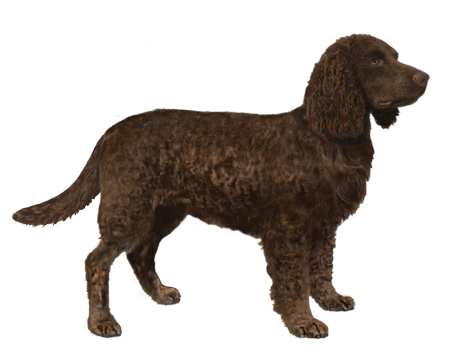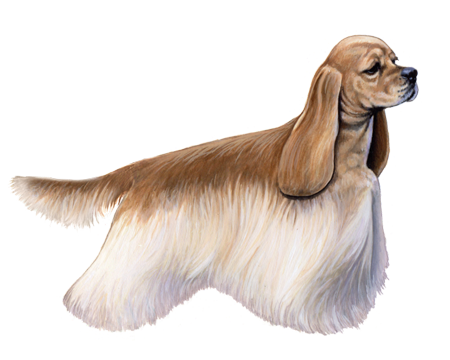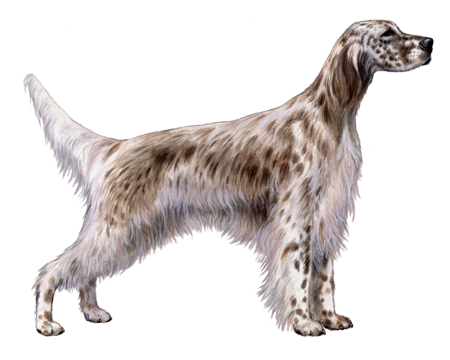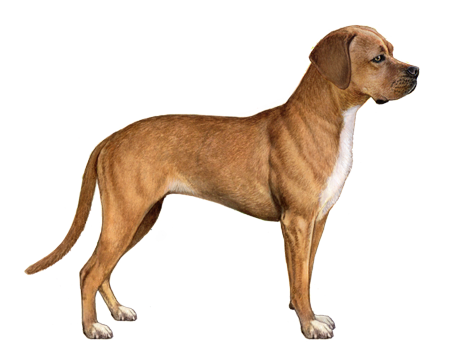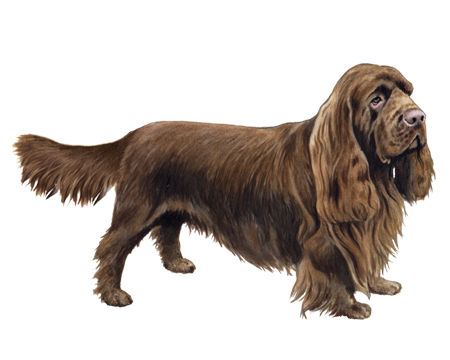
Poodle (Medium and Standard)
The Poodle is a calm, smart, sensitive breed that makes a great jogging buddy, family dog, and (if properly coiffed) fashion statement.
Interested in discovering if your dog is a Poodle (Medium and Standard)?
Check out Wisdom Panel's DNA tests.
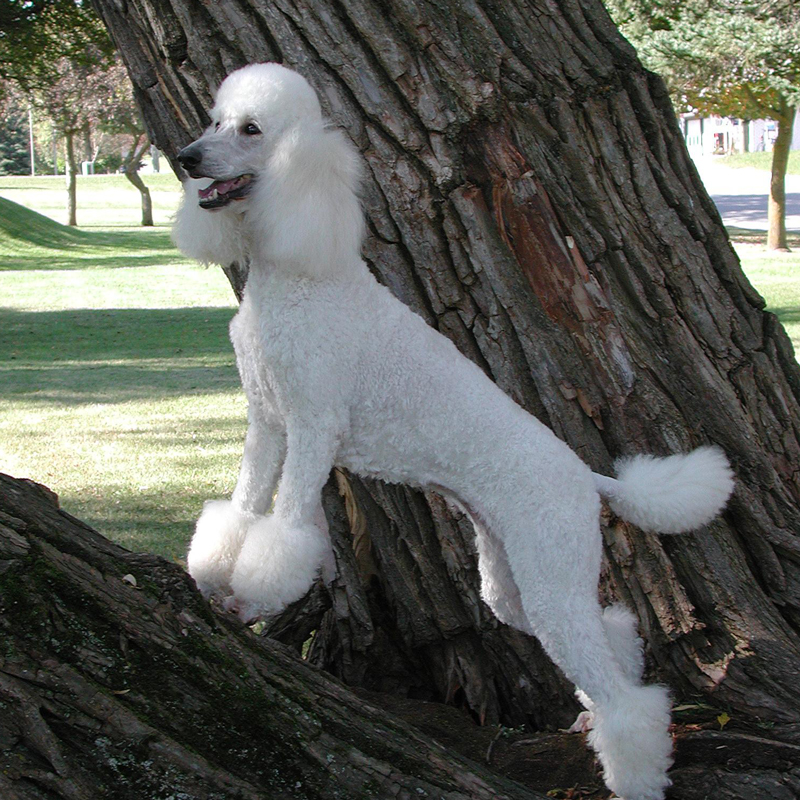
Poodle (Medium and Standard) Traits
General Appearance
Standard and Moyenne Poodles are elegant, well-proportioned dogs with frizzy and curly coats.
Coat and Coloring
The Poodle's dense coat can be curly (frizzy curls over the whole body) or corded (even cords that hang in varying lengths). Poodle owners often give their pups stylized haircuts or a "puppy clip" that trims hair to an even length over the whole body.
Poodles come in a wide range of colors—including solid blacks, grays, silvers, browns, apricots, creams, and shading variations.
Distinctive Physical Traits
Standard and Moyenne Poodles have dark, oval-shaped eyes that offer an alert, intelligent expression. Covered in long, wavy hair, their ears are long enough to reach the corner of the lip when pulled forward.
Poodle (Medium and Standard) Temperament
The Poodle is an incredibly smart, playful, and (to the surprise of many) athletic breed. Typically friendly, Poodles get along well with dogs, other pets, and kids.
These pups love people and form tight bonds with their families. And thanks to their sensitive nature, they even pick up on the moods of people they're close to. Such intuition—combined with a willingness to please—makes the Poodle a great assistance and therapy dog.
Poodles may bark, and some are reserved around strangers. But early socialization can help prevent these and other undesirable behaviors.


Poodle (Medium and Standard) History
Despite their strong association with the country, Poodles didn't originate in France. And no one really knows the full story behind the breed's origins. Poodles are likely related to the Portuguese Water Dog and Irish Water Spaniel. Some experts believe they originated in Central Europe or Russia, whereas others think they got their start in Spain or Portugal. Another popular theory is that German soldiers brought the Poodle to France during the 1400s.
Regardless of the breed's exact beginnings, everyone agrees that Poodles were bred for bird hunting and water retrieval. And their love of water is how they got their name. "Poodle" comes from an old German word meaning "to splash about."
What's the deal with the famous Poodle haircut? Hunters knew Poodles would be more efficient swimmers if they had less hair. But less hair would leave them more vulnerable to the cold water. So, creative Poodle owners had an idea. They shaved most of the dog's body but strategically left puffs of hair to protect joints and vital organs from the cold. Problem solved.
In the 1700s, owners bred the original Poodle (now known as the Standard Poodle) down to a smaller size, creating the Moyenne variety. Poodles also come in Miniature and Toy sizes.
Poodle (Medium and Standard) Care
Nutrition
These pups thrive on a high-quality diet formulated for their specific life stage (e.g., puppy, adult, senior). Foods developed specifically for Poodles are a great option to explore.
To prevent your Poodle from becoming overweight, keep an eye on their food portions. And be sure to take treats into account when tracking their daily calorie intake. As a guideline, treats should make up no more than 10% of a dog's calories.
Grooming
Poodles have hair instead of fur. That means—unlike fur coats that grow to a point and then shed—a Poodle's hair keeps growing. Similar to human hair, this breed's hair does still fall out. But it usually falls back into their coats (instead of all over the house). Because of this minimal shedding, Poodles may be a good choice for people with allergies.
Though they don't shed much, Poodles still need regular grooming. To keep your dog's hair free from mats and tangles, brush a few times a week. And because their hair grows continuously, plan on haircuts every month or so.
Lastly, all dogs should follow an at-home dental care routine that includes regular teeth brushing (in addition to professional dental cleanings).
Exercise
A very active breed, the Poodle enjoys many of the same activities other dogs in the sporting group do. Long walks, jogs, agility, retrieving, rally, and swimming are fun ways for a Poodle to burn off energy. Or for something a little different, try musical canine freestyle—a mix of obedience training, dance, and tricks.
Training
Poodles are very bright dogs, and therefore easy to train. Because they're so responsive and eager to please, reward-based training using treats or favorite toys is the best approach with these pups.

Poodle (Medium and Standard) Genetic Health Conditions
-
Degenerative Myelopathy
Degenerative Myelopathy (DM) is a neurological disorder, usually affecting dogs in their senior years. Loss of hind limb coordination is an early sign of disease, and as the condition progresses the hind limbs of affected dogs become increasingly weak.
-
Neonatal Encephalopathy with Seizures
Neonatal Encephalopathy with Seizures (NEWS) is a disorder that affects the development of the balance and movement center of the brain.
-
Osteochondrodysplasia
Osteochondrodysplasia is a disorder of bone and cartilage development resulting in stunted growth, misshapen limbs, and abnormal movement.
-
von Willebrand's Disease, type 1
von Willebrand's Disease (vWD) Type 1 is a blood clotting disorder that typically causes mild bleeding tendencies although some affected dogs may have more severe signs. It is the result of low levels of von Willebrand's factor, a blood protein that helps stabilize blood clots.
Knowing if your Poodle (Medium and Standard) is a carrier or at-risk for these conditions can help you and your veterinarian plan for your pup’s lifelong care. With Wisdom Panel™ Premium, you can get results for over 200 genetic health tests.
Breed Group
Sporting
The sporting group breeds are incredibly diverse in personality and appearance, but can be characterized as very sturdy. They were developed to work closely with people and in general have a very responsive nature and high intelligence.




